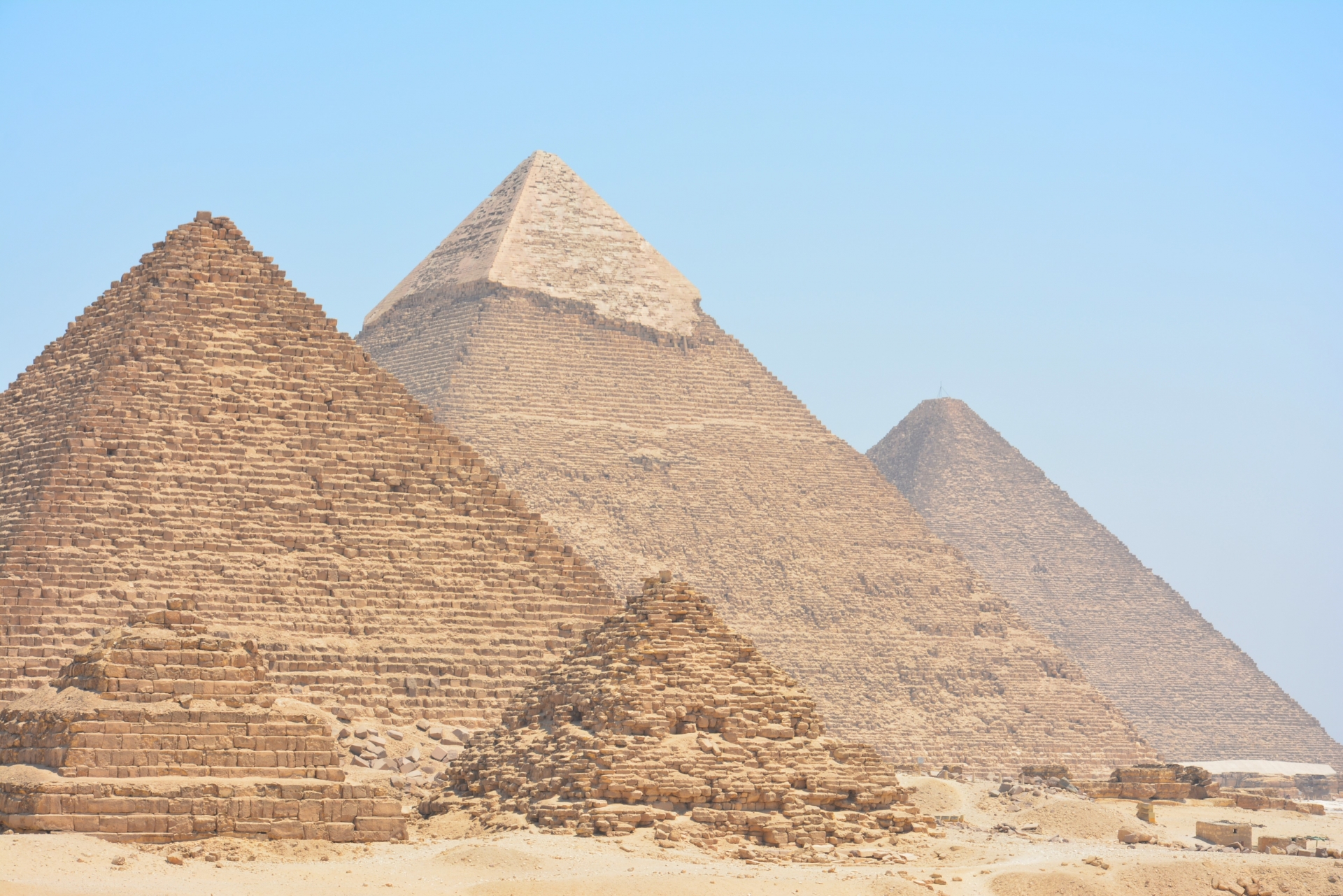The slaves and the supercomputers
For a long time, we were taught that the Great Pyramid of Giza was built in just 20 years by a miserable army of slaves. Does anyone still believe this? Decades ago, the Obayashi Corporation conducted a serious simulation. Their conclusion? Even with modern technology and unlimited resources, it would take five years. For people 4,500 years ago to finish it in 20 years? The math simply doesn’t add up.
Pyramids are masterpieces of geometry, built with a level of accuracy that modern machines struggle to replicate. In my opinion, they were a super-long-term public project designed to provide stable employment and project national prestige—a massive, ancient version of an economic stimulus package.
Revisiting the endless mysteries surrounding the pyramids reminds me of a quote by the legendary Japanese artist Taro Okamoto. He once said, “It is important that art is not understood by anyone.” His point was that if something is not understood, it cannot be “evaluated.” And if it cannot be evaluated, its value cannot deteriorate with the passage of time. When you consider that both Okamoto’s Tower of the Sun and the Great Pyramids remain world-class tourist attractions, it seems that “being incomprehensible” is a vital strategy for long-term brand power. The most enduring icons are the ones we can never quite figure out.
The revelation of the lost civilization
However, there is a darker side to this mystery. The documentary The Revelation of the Pyramids suggests that these structures are not just tombs, but repositories of advanced knowledge—evidence of a super-advanced civilization wiped out by a global catastrophe.
It makes me realize how fragile human progress actually is. We assume history is a straight line going “up,” but the pyramids suggest it’s more like a series of peaks and valleys. The hardest thing for any civilization to do isn’t building a monument; it’s handing over the “how-to” to the next generation before the knowledge decays into myth.
The 20-Year reset: Japan’s living pyramid
If the pyramids represent the “Universality of Mystery,” then Japan’s Ise Grand Shrine represents the “Universality of Transmission.” This shrine has been torn down and rebuilt from scratch every 20 years for over a millennium. This isn’t because the wood is rotten; it’s a brilliant system for preserving traditional woodworking skills. By rebuilding it while the master craftsmen are still alive to teach the apprentices, we ensure that 2,000-year-old wisdom never becomes an “incomprehensible mystery” like the pyramids.
At CondeHouse, we are part of this living chain. Every chair we make is a small piece of that inherited “shrine” technology. We don’t just build furniture; we build a defense against the catastrophe of forgetting.
Following Taro Okamoto’s logic, the Hatsune Miku Art Chair blends the “understood” tradition of woodworking with the “incomprehensible” energy of a digital icon. Much like rebuilding a shrine every 20 years, spending this much effort on a single chair is a mysterious choice—but we do it to ensure our skills never become lost relics of a forgotten civilization. Why not sit in a piece of furniture that defies easy evaluation, preserves ancient DNA, and remains eternally captivating? It’s not just a chair; it’s your own personal “Tower of the Sun” designed to survive the next catastrophe.


Shungo Ijima
Global Connector | Reformed Bureaucrat | Professional Over-Thinker
After years of navigating the rigid hallways of Japan’s Ministry of Finance and surviving an MBA, he made a life-changing realization: spreadsheets are soulless, and wood has much better stories to tell.
Currently an Executive at CondeHouse, he travels the world decoding the “hidden DNA” of Japanese culture—though, in his travels, he’s becoming increasingly more skilled at decoding how to find the cheapest hotels than actual cultural mysteries.
He has a peculiar talent for finding deep philosophical meaning in things most people ignore as meaningless (and to be fair, they are often actually meaningless). He doesn’t just sell furniture; he’s on a mission to explain Japan to the world, one intellectually over-analyzed observation at a time. He writes for the curious, the skeptical, and anyone who suspects that a chair might actually be a manifesto in disguise.
Follow his journey as he bridges the gap between high-finance logic and the chaotic art of living!

